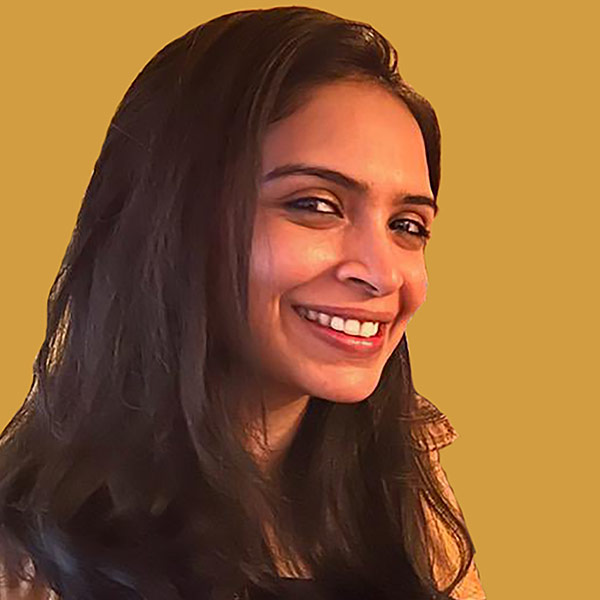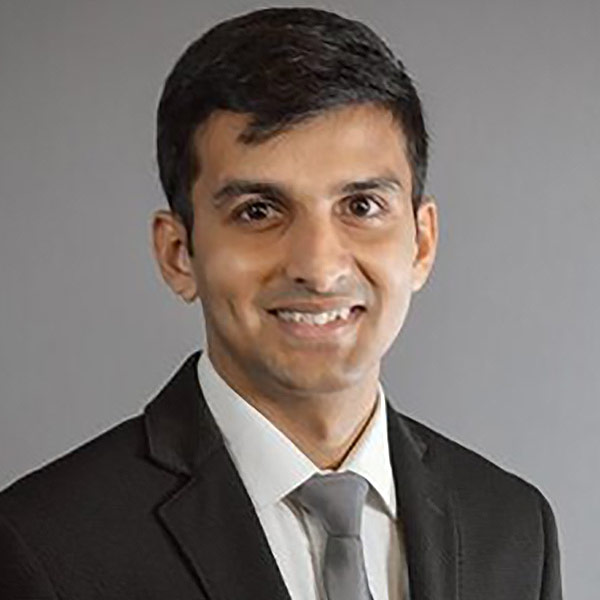FIT Spotlight: Aditi Nayak, MD, MS

Aditi Nayak, MD, MS, (Biomedical Innovation and Development) is a cardiology fellow at Emory University and is an incoming Advanced Heart Failure and Transplant Cardiology (AHFTC) fellow at Brigham and Women's Hospital. Twitter: @AditiNayakMD.
How was your experience as a fellow in the academic clinical investigator track at Emory?
I've had a wonderful experience as a fellow in this program! It has provided me with invaluable mentorship and helped me develop a structured approach to research. I was exposed to everything from trial design and recruitment for my own study from the ground up, to helping with multi-center large industry trials.
Why did you choose to pursue an MS in Biomedical Innovation?
My overarching career aim is to sustainably address healthcare disparities in advanced HF, with a focus on the LVAD field. I plan to achieve this through a bedside-> bench-> implementation at the bedside approach; beginning with recognizing existing disparities at the bedside-> understanding their root causes through clinical and translational research-> solution finding and implementation for scalable impact at the bedside. The Georgia Tech MS program in Biomedical Innovation and Development has provided me with the tools to translate my research to scalable innovation at the bedside and taught me how to work in cross-disciplinary groups with colleagues from engineering and business.
Why Advanced HF?
From an academic standpoint, I always knew I wanted to be in a high-impact, highly innovative specialty, where I could put my passion for healthcare parity to good use. From a clinical standpoint, I felt the most happy and inspired while taking care of the advanced HF patient whether on the in-patient service or in the CCU. I cherished the deep relationships I was able to form with these patients and being an advocate for their care. Putting all this together, pursuing an AHFTC fellowship was really a no-brainer of a choice for me!
How have mentors helped shape your career path?
I owe every aspect of my career path to my village of fantastic mentors. My dad, an academic nephrologist in India, and my first mentor; made me aware of the existence of inequities in medicine and taught me to "think outside the box" to address them. Robert Kormos, MD, and Marc Simon, MD, FACC, at UPMC instilled a fascination for the LVAD field in me. Alanna Morris, MD, MSc, FACC, at Emory pushed me to think about disparities centered research on a more critical level and has really shaped my evolution as a disparities-focused researcher. Jennifer Cowger, MD, MS, FACC, at Henry Ford is helping me understand LVAD pump-patient interactions in the context of observed disparities in LVAD-related outcomes, on a completely different level. Mandeep Mehra, MBBS, FACC, at the Brigham is challenging me to "think big," be an advocate for the LVAD field and address disparities at a policy level. All in all, I would not be here if it hadn't been for each of these individuals who have selflessly dedicated their time and energy to mentor me.
What do you do for fun?
Outside work, I prioritize spending time with my family and friends. I really enjoy theater, comedy shows and live music. My husband and I are foodies, so we're always exploring restaurants and cuisines together.
What ACC initiatives have you been a part of?
I have been involved in the ACC Innovation Council's cross-disciplinary efforts aimed at the digital transformation of cardiac care since the beginning of 2020. I am a member of the ACC Applied Healthcare Innovation Consortium, a workgroup chaired by Heba Wassif, MD, MPH, FACC, and tasked with providing thought leadership to the college on the evidence-based integration of digital technology into clinical cardiology practice. Under the leadership of Ritu Thamman, MD, FACC, I also represented the ACC on a collaboration with the Consumer Technology Association to develop and publish industry standards for the use and evaluation of cardiovascular med-tech.
What advice would you give to FIT and residents who want to pursue an academic career in cardiology?
A few guiding principles have worked for my career thus far. One is, put yourself out there. Apply for grants, awards, and committee positions. Don't be afraid to cold email someone if there's something you'd really like to be considered for; but make sure that you clearly and succinctly describe what you would like to do, and what you bring to the table. Of course, with this approach, you are also going to get a lot of rejections. However, building resilience to overcome rejection is a part of the academic evolution. Another is to follow up. I can't stress the importance of this enough especially when you're building a reputation as an early career researcher. Never over-commit and under-deliver and keep your time constraints in mind when you decide to take on a project. Finally, a life in medicine is hard; but always remember to advocate for your patients, be kind to yourself and your colleagues, and pay it forward.

This article was authored by Subrat Das, MD, a fellow at Mount Sinai Morningside.
This content was developed independently from the content developed for ACC.org. This content was not reviewed by the American College of Cardiology (ACC) for medical accuracy and the content is provided on an "as is" basis. Inclusion on ACC.org does not constitute a guarantee or endorsement by the ACC and ACC makes no warranty that the content is accurate, complete or error-free. The content is not a substitute for personalized medical advice and is not intended to be used as the sole basis for making individualized medical or health-related decisions. Statements or opinions expressed in this content reflect the views of the authors and do not reflect the official policy of ACC.